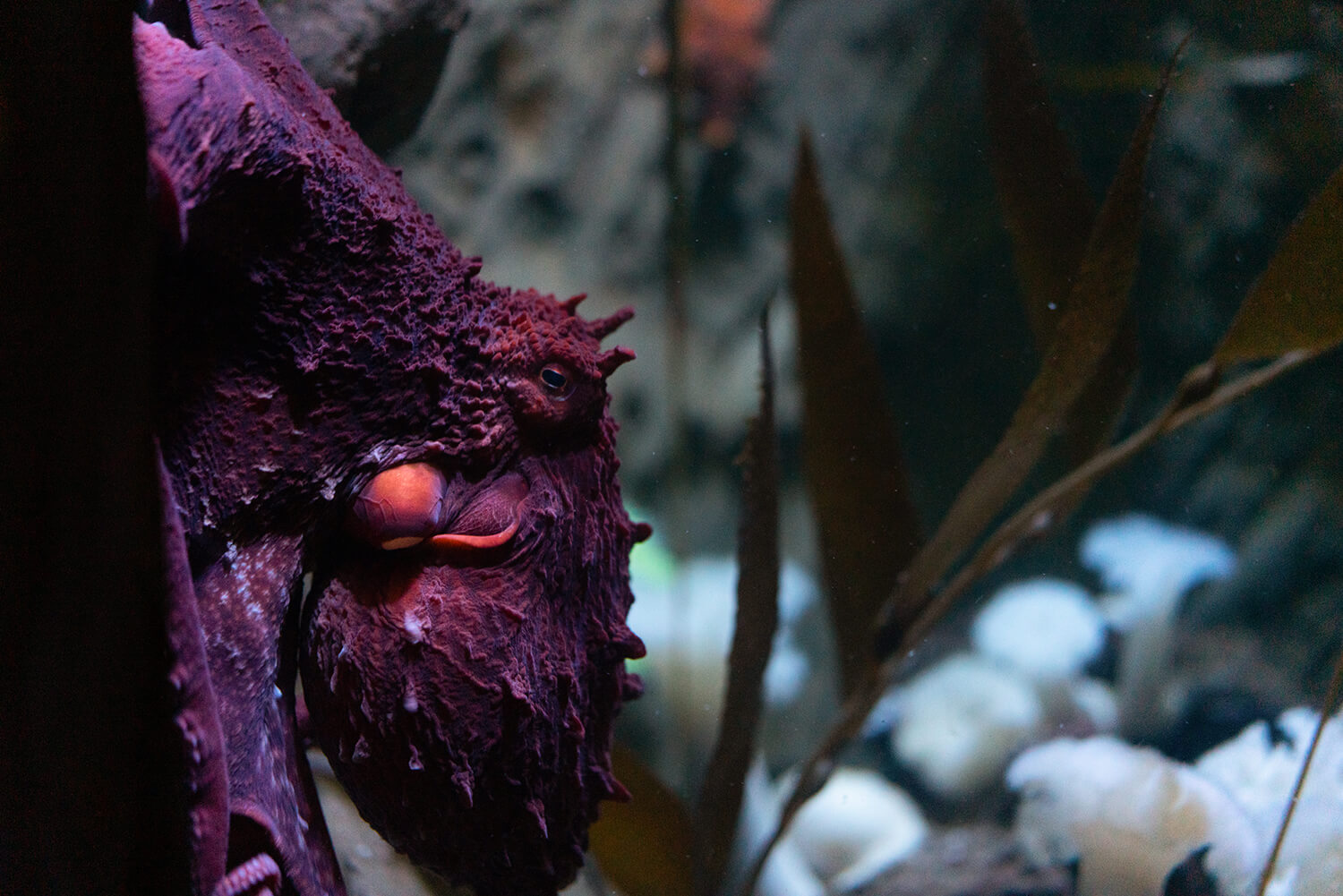POV You’re a GPO
Monday, August 19, 2023, written by Ashley Mitchell
The giant Pacific octopus is the largest species of octopus on our living planet. As a very shy and elusive creature, you might not know much about them or their life cycle. As a fun exercise, let’s pretend to live the life of an octopus.
Now close your eyes, I’ll count down from 5, and when you open your eyes, you’ll be a baby giant Pacific octopus.
5….4….3….2…1….
Welcome to the ocean! There are some things you should know.
- You are a member of the largest octopus species in the world, but you just hatched from an egg the size of a rice grain. Currently, you are just over a quarter-inch long and weigh about 22 milligrams, have eight arms, and about fourteen suckers on each arm.
- You’ll float along the surface waters for a few months, and then if you don’t become a meal for a fellow sea creature, you’ll settle to the sea floor when you reach about 5 grams.
- Fast forward a year, (if you haven’t been eaten) you’re now 2 pounds! Assuming you are able to find and capture prey.
- Now, you’re two years old and weigh around 20 pounds! You have become a successful hunter to find and capture prey. Now there’s a new perk…you’re ready to start looking for a mate!
Here’s where our journey comes to a fork. Let’s assume you are a female octopus.
Until now, you’ve been living a solitary life, saving all your energy for your one chance at mating. Oh, and by the time you turn 3, it’s near the end of your life. So, you need to mate soon! As a female, you get to pick your male mate. Typically, you’ll choose one much larger than you are for the best chances of offspring survival. What’s next?

- Find a den anywhere from shallow to deep waters, and then, you know, mate!
- After around a month, it’s time to lay those eggs! You can lay up to 100,000 eggs, and you must hang them from the roof of your den in strands of about 250 eggs each.
As the eggs develop over the next six months, you have two major jobs: first, fan the eggs to shoot streams of oxygen-rich water over the eggs. Second, protect the eggs from becoming a meal. Did I mention that you don’t eat during this period? You have now dedicated your life to ensuring the survival of your offspring.
Let’s bring you back from your imagination and into human form again!
Giant Pacific octopuses are magnificent creatures who seemingly live to reproduce. We also know octopuses to be intelligent creatures unlike any other. As humans, an intelligent species, our young still depend on their parents to raise and teach them the world. Yet, an octopus is hatched with complete independence, intelligent survival instincts, and an incredible ability to learn and adapt. So the question remains: Why does a creature with such high intelligence only live to be a few years old?
Scientists don’t have an answer……yet.

